Let's face it, there's nothing quite like a perfectly cooked hard-boiled egg. The satisfying “pop” when you crack the shell, the firm white that doesn't crumble, and that vibrant, bright yellow yolk... It's pure culinary bliss. But achieving this egg-cellent result can feel like a bit of a gamble. Too short in the water, and the yolk is runny. Too long, and it turns a ghastly green.
For years, I've been on a quest for the perfect hard-boiled egg. I'm a bit of an egg enthusiast, you see. I love them every way: sunny-side up, scrambled, poached, and of course, hard-boiled. But getting them consistently right has been a challenge.
After countless experiments, I finally cracked the code. I'm ready to share my hard-earned wisdom with you, fellow egg aficionados. This article is your ultimate guide to cooking the perfect hard-boiled egg, from selecting the ideal egg to mastering the boiling technique.
Part 1: Choosing Your Eggs
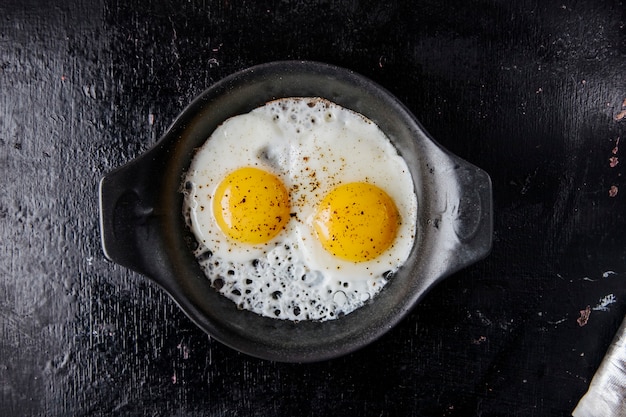
choosing the right eggs is crucial for success. Think of it as the foundation of your eggcellent journey!
Freshness is Key
A fresh egg is always going to give you the best results. But how do you tell if an egg is fresh? The classic test is the "float test." Simply drop your egg into a bowl of cold water. If it sinks to the bottom and lies flat, it's fresh. If it stands upright, it's a bit older. If it floats, then it's time to toss it in the compost bin.
Size Matters
The size of your egg affects the cooking time. Smaller eggs cook faster, while larger ones need a bit more time. I find that medium-sized eggs are the most versatile. They cook consistently well, and they're not too big or too small, making them perfect for any application.
Part 2: The Art of Boiling
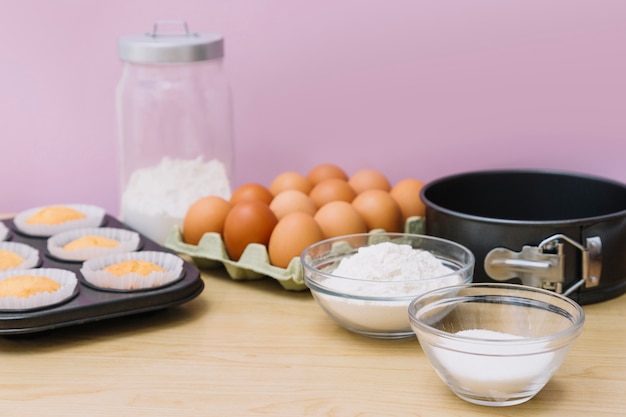
Now, it's time to unleash your inner egg wizard and conquer the boiling process!
Prepare Your Eggs
Start by taking your eggs out of the refrigerator and letting them come to room temperature. This helps prevent cracking during boiling. Give them a good wash to remove any dirt or debris, and feel free to pat them dry with a clean towel. You want to ensure a smooth and crack-free experience. Some chefs swear by adding a teaspoon of salt to the boiling water, which is said to help prevent cracking as well.
The Boil
Bring a pot of water to a rolling boil. Then, gently lower your eggs into the water using a spoon. Resist the urge to drop them in! They should be fully submerged in the water. Once the water returns to a boil, start timing.
The Timing Game
This is where your egg wizardry really comes into play! The cooking time depends on how firm you want your yolk. Here's a handy table to guide you:
| Desired Yolk Texture | Cooking Time |
|---|---|
| Soft Boiled (runny yolk) | 3-4 minutes |
| Medium Boiled (creamy yolk) | 5-6 minutes |
| Hard Boiled (firm yolk) | 7-8 minutes |
| Very Hard Boiled (very firm yolk) | 10-12 minutes |
Remember, these are just guidelines. Adjust the timing slightly based on your preference and the size of your eggs. If you're unsure, it's always better to err on the side of undercooking. You can always cook them for a bit longer, but you can't uncook an egg!
Part 3: Shocking Your Eggs
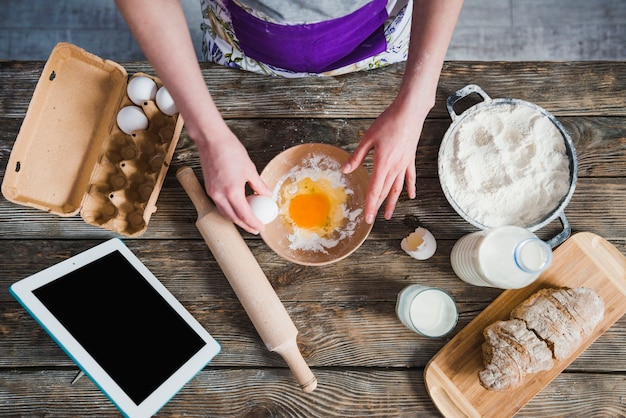
Once your eggs are cooked to your liking, it's time to shock them! This crucial step stops the cooking process and makes peeling a breeze.
Immediately drain the hot water from the pot and submerge the eggs in a bowl of ice water. Let them chill for about 10 minutes before peeling.
The Peeling Process
Now for the moment of truth: peeling. This can be a bit tricky, especially if your eggs are overcooked. My go-to technique is to gently tap the egg all over, then roll it on the counter to crack the shell. Start peeling from the wide end and gently pull the shell off in pieces. If the egg is overcooked, you may need to use a spoon to help you peel it.
Avoiding the green ring
Ever noticed that green ring around the yolk of an overcooked hard-boiled egg? It's caused by a chemical reaction between the iron in the yolk and the hydrogen sulfide in the egg white. To prevent this, you can add a tablespoon of vinegar to the boiling water. The acid in the vinegar helps to prevent the hydrogen sulfide from forming.
Part 4: Storing Your Eggs
Once your eggs are peeled and ready to go, store them in the refrigerator in an airtight container. They'll keep for up to a week.
Part 5: Beyond the Basics
Now, let's get creative and explore the exciting world of flavouring and using hard-boiled eggs!
Flavoring Your Eggs
Hard-boiled eggs are incredibly versatile. You can infuse them with different flavours by soaking them in various liquids. For a salty, umami punch, soak them in soy sauce. For a vibrant red hue and a sweet, earthy flavour, try soaking them in beetroot juice. The possibilities are endless!
egg salad
Who doesn't love a good egg salad? It's a classic for a reason. Simply mash your hard-boiled eggs with mayonnaise, mustard, chopped celery, and salt and pepper to taste. Add a pinch of paprika for a touch of warmth. You can also add other ingredients like chopped onions, pickles, or a sprinkle of fresh herbs.
deviled eggs
Another classic: deviled eggs. These are perfect for parties, picnics, or a simple snack. Slice your hard-boiled eggs in half lengthwise, scoop out the yolk, and mash it with mayonnaise, mustard, and your favourite spices. Spoon the mixture back into the egg whites and sprinkle with paprika or chopped chives.
Part 6: Beyond The Kitchen
Hard-boiled eggs are more than just a culinary delight. They have a rich history and have even found their way into the world of art!
Eggs in Art
Did you know that hard-boiled eggs are used in art? It's true! Artists use eggs to create intricate designs and sculptures. Check out the work of James Doran-Webb. He's known for his incredible egg mosaics.
Eggs in History
Hard-boiled eggs have been around for centuries. There's evidence that ancient Egyptians used to decorate eggs and give them as gifts. They also used them in their religious ceremonies. Who knew?
Part 7: Troubleshooting Tips
Even the most seasoned egg wizard can encounter a few bumps along the way. Here are some common issues and how to avoid them.
Cracked Eggs
If your eggs crack during boiling, don't panic. You can still salvage them. Just add a tablespoon of salt to the boiling water. The salt helps to hold the egg whites together and prevent them from leaking out.
Green Ring
If you notice a green ring around your yolk, it's probably because the eggs were overcooked. Try to avoid overcooking your eggs in the future, and add a tablespoon of vinegar to the boiling water to prevent the green ring from forming.
Uneven Texture
If your eggs are unevenly cooked, it's likely because they weren't all submerged in the water during boiling. Make sure all of your eggs are fully submerged in the water next time.
Part 8: FAQs
Now let's address some frequently asked questions about hard-boiled eggs.
1. What if I don't have ice water?
If you don't have ice water, you can use cold running water to stop the cooking process. Just make sure the water is as cold as possible.
2. Can I peel my eggs before they're fully cooled?
It's best to wait until the eggs are fully cooled before peeling them. This will make the peeling process much easier. If you peel them while they're still warm, the shell may be more difficult to remove, and the egg white may be a bit rubbery.
3. Can I boil eggs in the microwave?
I wouldn't recommend boiling eggs in the microwave. The results are often unpredictable, and the eggs can easily explode. Stick to the traditional stovetop method for the best results.
4. How long can I store hard-boiled eggs in the fridge?
Hard-boiled eggs can be stored in the fridge for up to a week. Make sure they're stored in an airtight container to prevent them from drying out.
5. What are some other ways to use hard-boiled eggs?
Hard-boiled eggs are a fantastic base for a wide range of dishes. Try adding them to salads, sandwiches, or pasta dishes. They're also great in frittatas, quiche, and soups. Let your imagination run wild!
Everyone is watching

Perfect Rice Every Time: The Ultimate Guide to Cooking Rice
Cooking TipsAs a self-proclaimed foodie, I've always been a bit obsessed with rice. It's the foundation of countless cuisi...

Ultimate Guide to Cooking the Perfect Thanksgiving Turkey
Cooking TipsThanksgiving. Just the word conjures up images of overflowing tables laden with delicious food, the scent of r...

The Ultimate Guide to Cooking Asparagus: Tips, Techniques, and Recipes
Cooking TipsAsparagus. The mere mention of this spring delicacy conjures up images of vibrant green spears, crisp and burs...
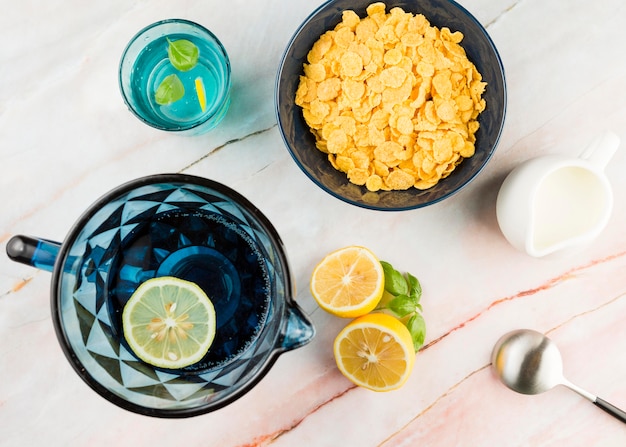
Can You Cook Spaghetti with Gasoline? (The Shocking Truth)
Cooking TipsWe've all seen those crazy internet trends. You know, the ones that make you wonder, "Did someone actually try...
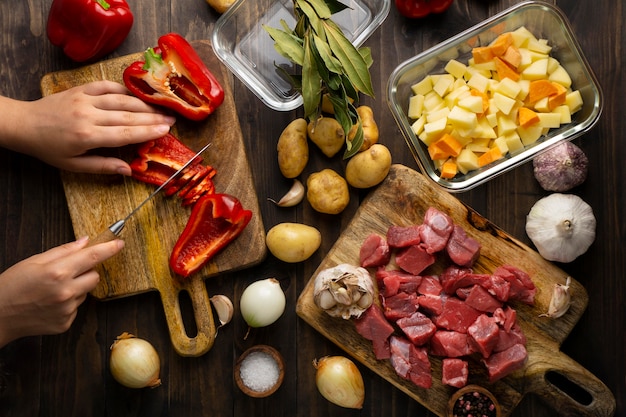
Chorizo and Eggs Recipe: The Ultimate Guide
Cooking TipsRight, let’s talk about chorizo and eggs. You know, that classic Spanish dish that's always a winner. It's th...
